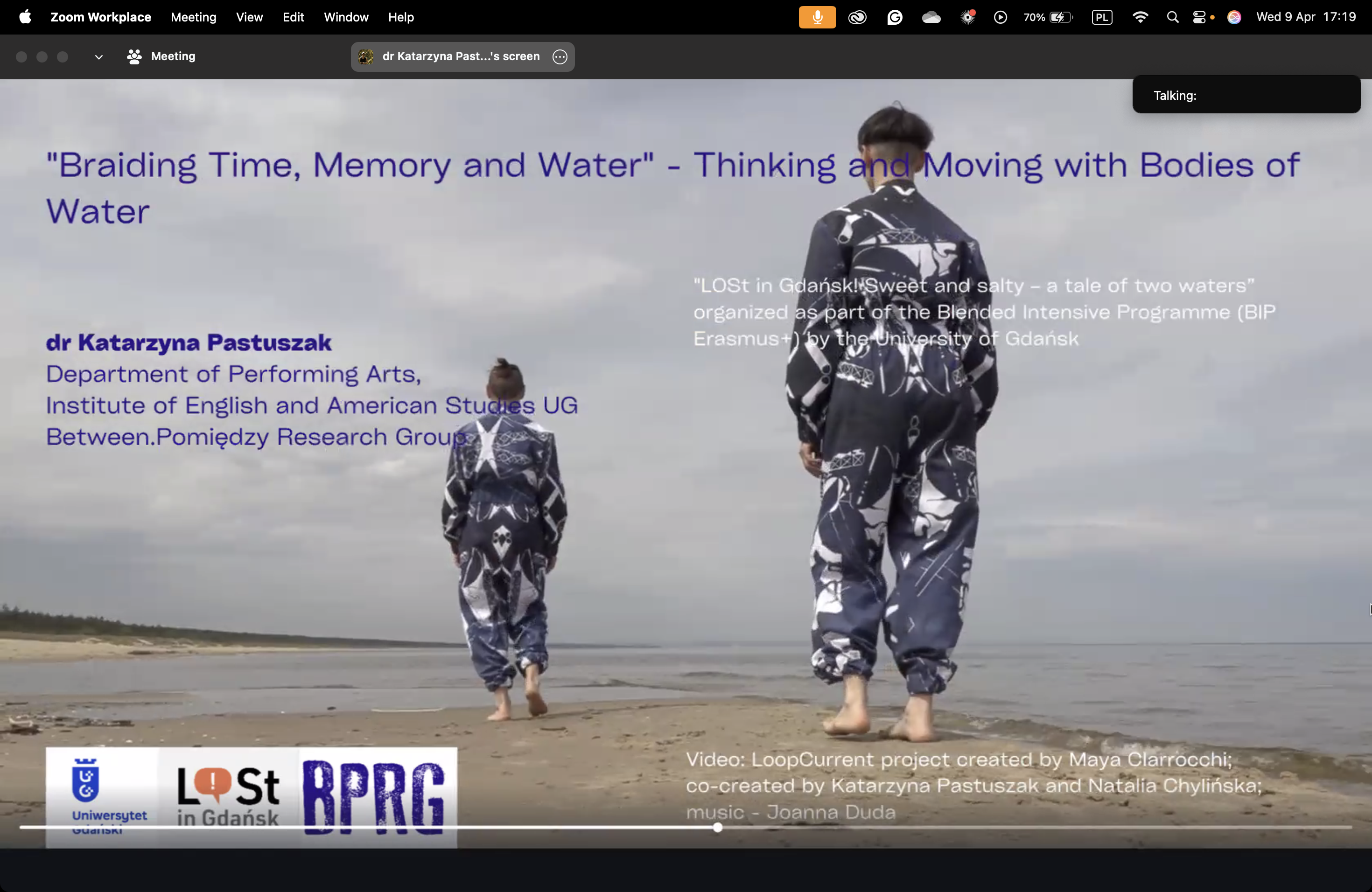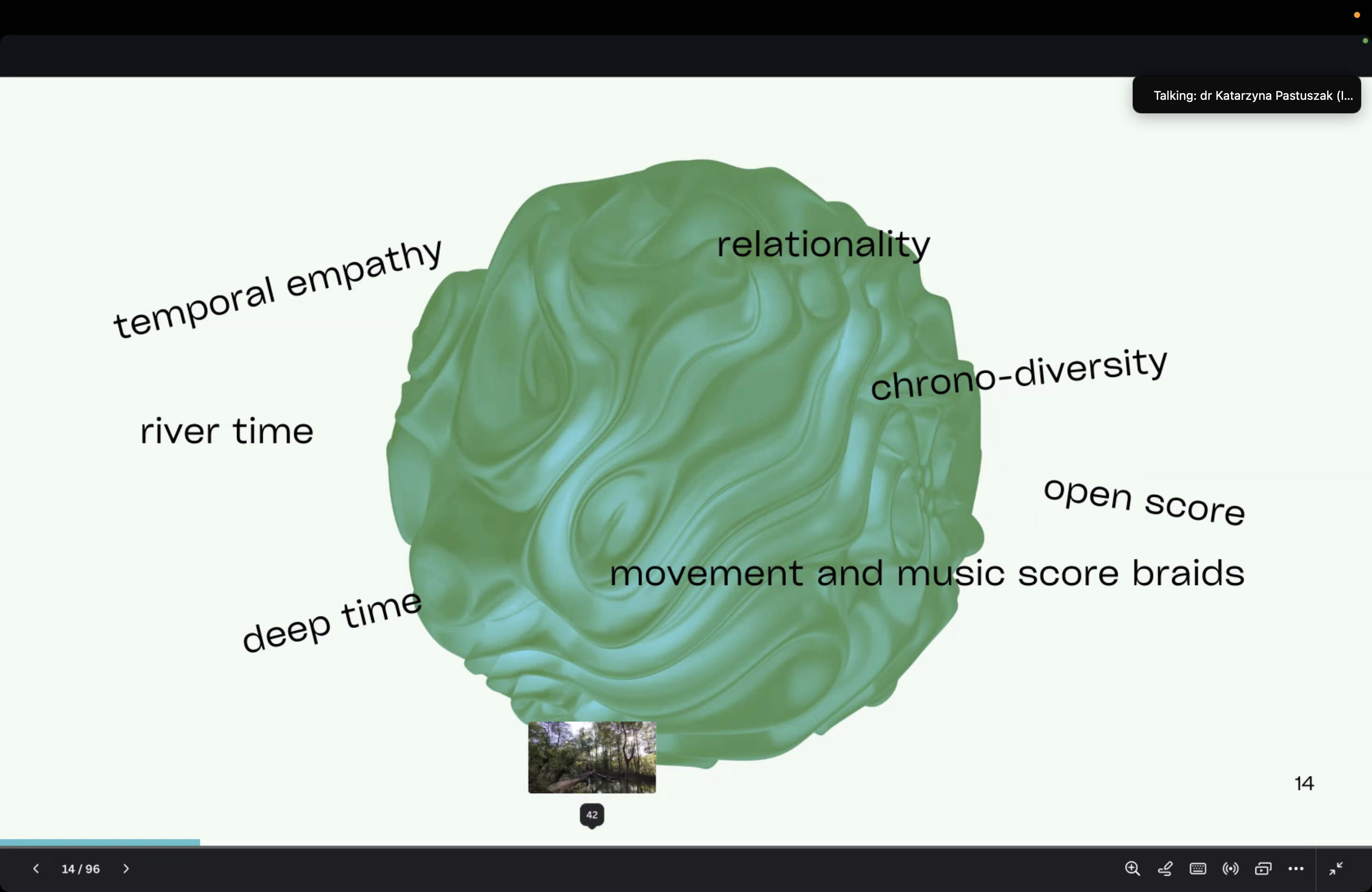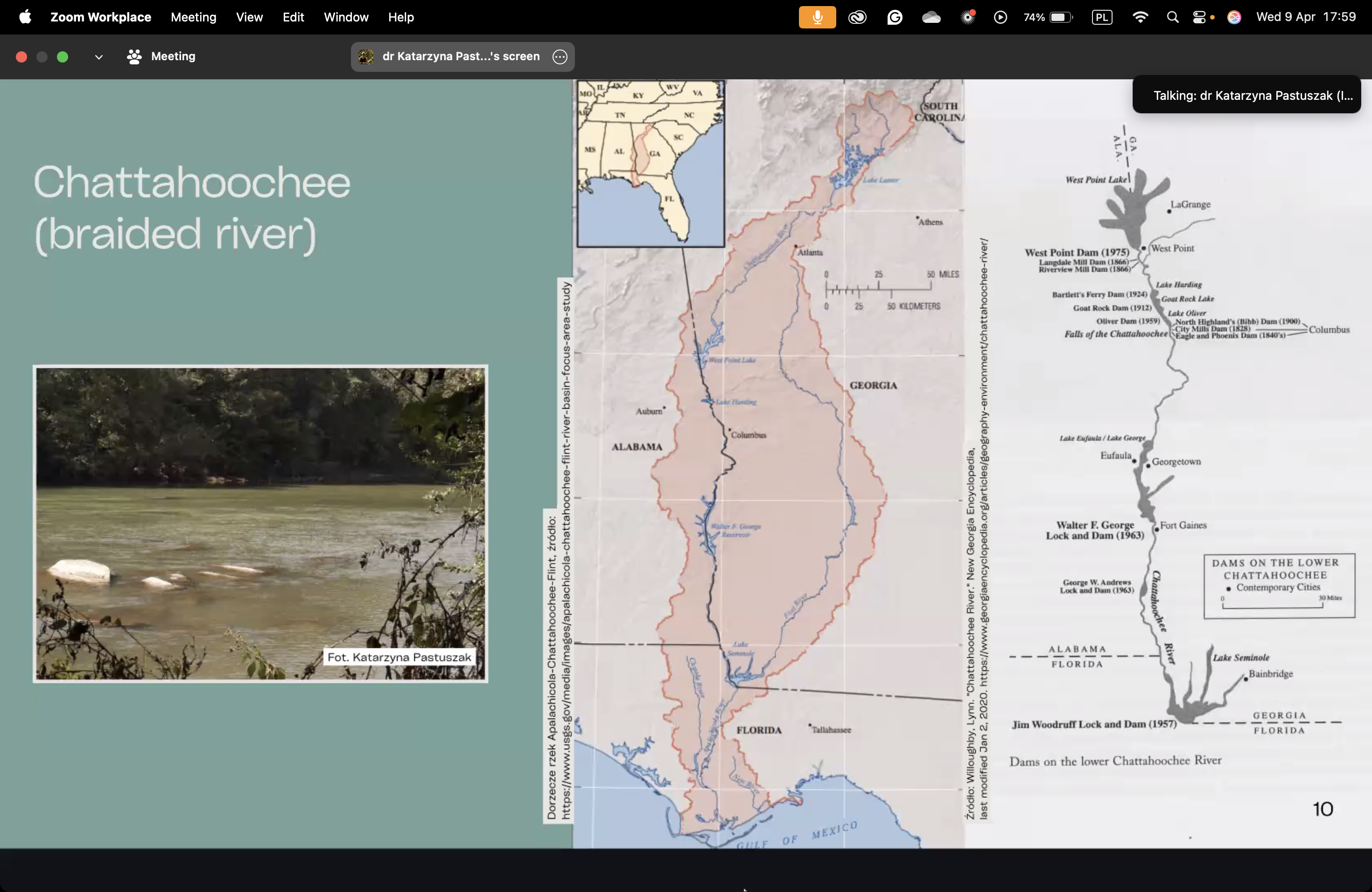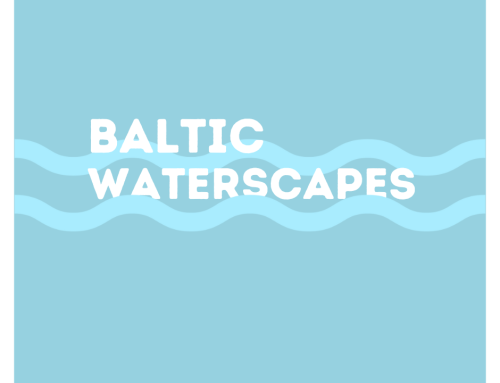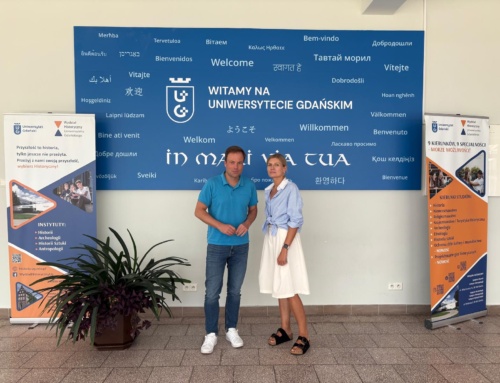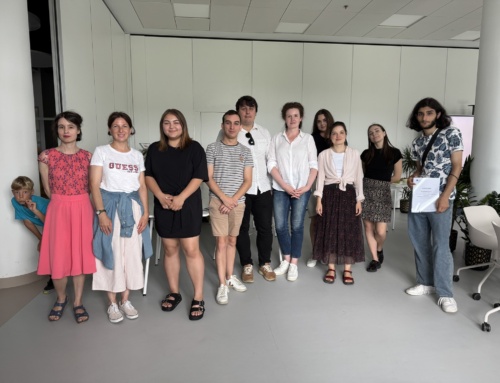At the beginning of April, participants of the Blended Intensive Programme (BIP Erasmus+) “LOSt in Gdańsk! Sweet and salty – a tale of two waters” had the opportunity to participate in online classes for a whole week. The issues raised during the meetings, although diverse and referring to various areas of life and discourses, were combined into a coherent story about the well-being of a person living at the intersection of culture and nature, a story about the human condition in a world of ecological crises and civilization challenges.
Together with Martyna Wielewska-Baka, students wondered whether poetry is a sufficient answer to the question of what can help us regain balance in turbulent times. The point of reference was the traces of Buddhist philosophy in the poems of the Polish Nobel Prize winner Czesław Miłosz.
Katarzyna Pastuszak encouraged students to turn to dance, meditation and experiencing the body (which consists mostly of water) to see if we can reconnect with water bodies through performances and somatic practices. The course participants tried to answer the question of whether modern man is able to establish a bond with a more-than-Human reality.
The relationship between man and water was also the subject of Irena Chawrilska’s classes. Water landscapes present in art were an inspiration for a discussion on the position of man in the relationship with the aquatic environment and nature.
In his reflections on the place that man occupies in the relationship with the Earth, Rick Dolpijn turned to geophilosophy, the fundamental idea of which is that the place in which we live, the physical framework of our territory, translates into our spiritual perception of the world and understanding of our position in it.
Sonia Czaplewska spoke about the relationship between man and nature in a different way, raising the topic of Pomeranian and Kashubian cuisine in her classes. The culture of this region, also in the aspect of food and culinary traditions, is very clearly connected with its geographical conditions. Traditional Kashubian cuisine proves that the proximity of the sea in particular has had a great influence on the lifestyle of the inhabitants of this area of Poland.

